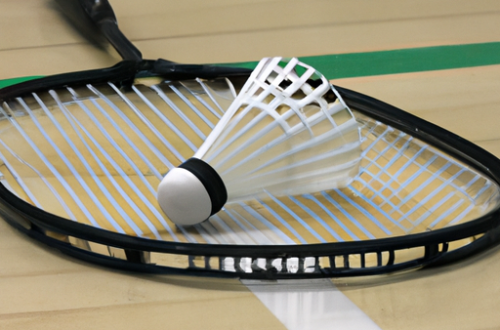
How Can I Find And Use Local Public Petanque Courts Or Recreational Areas?
Looking to enjoy a game of petanque or relax in a recreational area, but not sure where to find one near you? No worries, we’ve got you covered! This article will provide you with all the information you need to discover and make use of local public petanque courts or recreational areas. Whether you’re a seasoned petanque player or simply looking for a peaceful spot to unwind, we’ll guide you through the process of finding these hidden gems in your neighborhood. So get ready to explore and make the most of these fantastic community spaces!

1. Searching for Local Public Petanque Courts
1.1 Online search engines
When searching for local public petanque courts, online search engines can be a great starting point. Simply type in keywords such as “public petanque courts near me” or “local petanque facilities” and you’ll likely find various results. Make sure to include your city or region in the search to get more accurate and specific results.
1.2 Local government websites
Another reliable source of information is your local government websites. Many cities and municipalities have dedicated park and recreation departments that provide comprehensive information about public petanque courts available in your area. These websites often provide details on location, hours of operation, and any specific regulations or policies you need to be aware of.
1.3 Local petanque associations
Reach out to your local petanque associations to find out about public petanque courts and recreational areas in your community. These associations are usually well-connected and have up-to-date information on available facilities. They can guide you in locating petanque courts, connecting with other players, and even providing assistance in improving your game.
1.4 Social media platforms
Social media platforms can be surprisingly helpful in finding local petanque courts. Join local community groups or petanque-focused pages where people often share information about public petanque courts or recreational areas. You can also post a question in these groups, asking for recommendations from fellow petanque enthusiasts. It’s a great way to tap into local knowledge and connect with others who share your passion for the sport.
1.5 Community bulletin boards
Don’t forget to check out community bulletin boards in your area. These can be found at public libraries, community centers, or even local coffee shops. Many petanque enthusiasts or facility managers advertise public courts or recreational areas on these boards. Take a moment to browse through the listings and jot down any information that catches your eye. It’s a more traditional way of finding information but can be incredibly effective.
2. Utilizing Mobile Apps and Websites
2.1 Petanque-specific mobile apps
In this digital age, there are several mobile apps dedicated to petanque that can help you locate local public courts or recreational areas. These apps often provide information on court availability, user reviews, and even allow you to connect with fellow petanque players in your area. Some notable petanque apps include “Petanque Locater” and “Petanque Playground.” Downloading these apps can be a convenient and efficient way to find and utilize local petanque courts.
2.2 Sports and recreation websites
Many sports and recreation websites have extensive databases of sports facilities, including petanque courts. Websites like “Playfinder” or “SportingPulse” allow you to search for petanque facilities based on your location and provide detailed information such as court availability and booking options. These platforms often have user-friendly interfaces and can be particularly useful for those who prefer browsing information on their computers rather than their smartphones.
2.3 Location-based apps
There are various location-based apps that can help you find public petanque courts or recreational areas. Apps like Google Maps or Apple Maps can provide you with directions and even display reviews from other users. Simply search for “petanque courts” or “petanque facilities” in these apps, and you’ll see a list of nearby options. This way, you can easily find the closest locations and explore different areas at your fingertips.
3. Contacting Local Sports Facilities
3.1 Public parks and recreational areas
Public parks and recreational areas often have dedicated spaces for petanque, making them ideal places to enjoy the sport. Contact your local park management office or visit their website to inquire about any existing petanque courts. They will be able to provide you with information on accessibility, usage policies, and any potential requirements for using the facilities. It’s always a good idea to familiarize yourself with the rules and guidelines set by the park authorities to ensure a smooth experience.
3.2 Community centers and sports clubs
Community centers and sports clubs are other excellent resources for finding public petanque courts. These organizations often have their own facilities or can direct you to nearby locations where you can play. Reach out to the staff or members of these centers and clubs and inquire about any public petanque courts available. They may also be able to provide additional information about leagues or events happening in your area, allowing you to further engage with the petanque community.
3.3 Local schools and universities
Schools and universities with outdoor sports facilities occasionally have petanque courts that are open to the public during non-school hours. Contact the administration offices of local educational institutions and ask about any open-access petanque courts on their premises. This can be an excellent option, especially if you prefer playing during quieter times or if you’re looking to challenge yourself by playing against younger, more competitive players.
3.4 Retirement communities and senior centers
Retirement communities and senior centers often provide recreational areas for their residents, and some may include petanque courts. If you’re a senior or enjoy playing petanque with older players, reaching out to retirement communities, or senior centers can be rewarding. They may have dedicated courts or schedule regular petanque sessions where you can join in and socialize with like-minded individuals.
4. Engaging with the Petanque Community
4.1 Joining local petanque clubs
One of the best ways to immerse yourself in the world of petanque is by joining local petanque clubs. These clubs typically have their courts or access to public facilities, making it easier for you to find places to play. By joining a club, you gain the opportunity to connect with experienced players, learn from their expertise, and participate in competitive events. Local clubs often organize regular games and social gatherings, making it a great platform for meeting fellow petanque enthusiasts.
4.2 Attending petanque events and tournaments
Attending petanque events and tournaments is not only a fun way to enjoy the sport but also a great opportunity to discover new public petanque courts or recreational areas. These events often take place at established venues and attract both local and visiting players. Take note of the locations where events are held, and consider visiting at a later date to enjoy the facilities outside of tournaments. Additionally, attending events allows you to network with other players, potentially gaining insights into hidden gem locations or unique places to play.
4.3 Participating in social media groups
Social media groups dedicated to petanque can be a treasure trove of information and connections. Joining these groups enables you to stay updated on the latest news, share experiences, and ask questions about local petanque courts or recreational areas. Members of the groups often provide valuable recommendations and insights based on their own experiences. Engaging with these online communities can help you expand your knowledge, build connections with other players, and discover new places to enjoy the sport.
4.4 Connecting with experienced players
Connecting with experienced petanque players in your area can be incredibly beneficial. Visit your local petanque courts and strike up conversations with other players. They might have valuable knowledge about lesser-known public courts or recreational areas that are not widely advertised. By building relationships with these players, you can tap into a network of information and expertise that can enhance your overall petanque experience.

5. Exploring Hidden Gems
5.1 Word-of-mouth recommendations
Word-of-mouth recommendations can often lead you to hidden gem petanque courts or recreational areas. Chat with friends, neighbors, or colleagues who have an interest in sports or recreational activities. Ask them if they know of any public petanque courts in the area or if they have any connections with local sports enthusiasts who might be in the know. People who are actively involved in the community may have inside information that can help you discover unique and lesser-known locations.
5.2 Exploring nearby neighborhoods
Exploring nearby neighborhoods is an exciting way to stumble upon hidden gem petanque courts. Take a stroll or drive around your city or town and keep an eye out for any signs or public spaces that could potentially accommodate petanque. Sometimes, you might come across small parks, community centers, or even residential areas that have well-maintained, but less-known, petanque facilities. This sense of discovery adds an extra level of enjoyment to your petanque adventures.
5.3 Asking local businesses and cafes
Local businesses and cafes in the vicinity of petanque-friendly areas can be valuable sources of information. Drop by these establishments and strike up conversations with the owners or staff. Express your interest in petanque and inquire if they know of any public courts or recreational areas nearby. They may have insights or connections that can guide you to unique locations. Plus, you might discover great spots to grab a post-game meal or drink, further enriching your overall petanque experience.
5.4 Checking local tourism websites
Local tourism websites are often overlooked when searching for petanque courts or recreational areas. However, these platforms can be a goldmine of information, especially if you’re exploring a new city or planning a trip. Tourist websites frequently list outdoor sports facilities, including petanque courts, that are open to both locals and visitors. These listings often provide additional details such as nearby amenities, parking availability, and any associated fees. It’s worth checking out these websites to discover hidden gems in your own backyard and beyond.
6. Understanding Local Regulations
6.1 Petanque court rules and regulations
Before heading out to use public petanque courts or recreational areas, it’s important to familiarize yourself with local rules and regulations. Each facility may have specific guidelines regarding court usage, hours of operation, and any restrictions that apply. Some courts may require reservations, while others may operate on a first-come, first-served basis. Understanding and respecting these rules ensures a smooth experience for you and other players.
6.2 Reservation and usage policies
Certain public petanque courts may have reservation systems in place. This allows players to secure a specific slot or time for their game. Be aware of the reservation policies and procedures, such as how far in advance you need to book a court and any associated fees. If reservations are required, make sure to plan accordingly to secure your preferred playing times, particularly during busy periods or popular seasons.
6.3 Safety guidelines
Safety should always be a priority when using public petanque courts or recreational areas. Familiarize yourself with any safety guidelines provided by the facility or local authorities. These guidelines may include information on equipment usage, appropriate attire, and keeping the court area clean and hazard-free. Adhering to safety guidelines not only protects yourself and fellow players but also helps maintain the facilities for the long-term enjoyment of everyone in the community.

7. Preparing to Use Petanque Courts
7.1 Gathering necessary equipment
Before heading to a public petanque court, make sure you have all the necessary equipment. Petanque typically requires boules (metal balls), a small target ball called the cochonnet or jack, and a measuring tape. Some courts may provide shared equipment, while others may require participants to bring their own. Ensure that your boules are in good condition, and if you’re a beginner, consider starting with a set of lighter balls until you become more comfortable with the game.
7.2 Determining court accessibility
When planning your visit to a public petanque court, it’s important to consider its accessibility. Check if the court has suitable parking options or if it’s easily accessible via public transportation. Determine if the court is wheelchair accessible, especially if you or your fellow players have mobility concerns. Taking these factors into account ensures a smooth and convenient experience, allowing you to focus on enjoying the game.
7.3 Checking court availability
Before setting off to a public petanque court, make sure to check its availability. Some courts may have specific operating hours or maintenance schedules that can affect their accessibility to the public. Certain facilities may have seasonal closures or limited hours during particular times of the year. Checking court availability in advance will save you time and ensure you don’t encounter any surprises upon arrival.
7.4 Bringing fellow players
Playing petanque is even more enjoyable when you have friends or family by your side. Bring along fellow players to share the experience and create lasting memories together. Not only does it foster camaraderie, but it also allows for larger teams or doubles play, adding variety and excitement. Plus, having company ensures that you can engage in friendly competition or practice sessions whenever you visit public petanque courts.
8. Proper Etiquette and Usage
8.1 Respecting court etiquette
When using public petanque courts, it’s essential to observe proper court etiquette. Be mindful of other players and avoid unnecessary distractions. Maintain a reasonable distance from neighboring games to avoid interfering with ongoing matches. If you’re a beginner or new to a particular court, ask for permission if you wish to join another group’s game. Respecting court etiquette ensures a harmonious and enjoyable atmosphere for all players.
8.2 Following game rules
Petanque follows a set of rules that govern gameplay. Familiarize yourself with these rules and ensure that you adhere to them during your time at public petanque courts. This includes understanding how to properly throw the boules, aiming for the cochonnet, and determining scoring. Respecting the rules keeps the game fair and allows for consistency throughout games, ensuring a positive experience for everyone involved.
8.3 Resolving conflicts and disputes
Conflicts or disputes may occasionally arise while using public petanque courts. Whether it’s a disagreement over scoring or the interpretation of game rules, it’s important to handle these situations calmly and respectfully. Engage in open communication and try to find a resolution that satisfies all parties involved. If an agreement cannot be reached, consider seeking assistance from a facility manager or a member of the petanque community who can provide guidance and help resolve the issue.
8.4 Maintaining cleanliness and organization
Keeping public petanque courts clean and organized is crucial. After your game or practice session, make sure to gather any equipment or personal belongings and dispose of any trash in designated bins. Avoid leaving behind any litter or debris on the court, as it can hinder others’ experiences and impact the overall cleanliness of the facility. Maintaining cleanliness and organization demonstrates respect for the space and consideration for fellow players who will be using it after you.

9. Enhancing the Petanque Experience
9.1 Organizing petanque tournaments
If you’re passionate about petanque and want to bring the community together, consider organizing petanque tournaments at public courts or recreational areas. Tournaments encourage friendly competition, allow players to showcase their skills, and create a sense of excitement and camaraderie. Work with local petanque clubs, associations, or even the local government to plan and execute these events. By organizing tournaments, you contribute to the growth and vibrancy of the petanque community in your area.
9.2 Hosting social gatherings
Petanque is not just about the game; it’s also about the social aspect and forging connections with other enthusiasts. Host social gatherings at public petanque courts to encourage players of all levels to come together, mingle, and enjoy the sport in a relaxed atmosphere. These gatherings can include casual games, barbecues, or small tournaments. By hosting social events, you help foster a strong and inclusive petanque community while creating opportunities for both new and experienced players to connect.
9.3 Supporting local petanque initiatives
Supporting local petanque initiatives is a fantastic way to contribute to the growth and development of the sport in your area. By volunteering or participating in fundraisers, you can help raise awareness and funds for the maintenance, improvement, or expansion of public petanque facilities. Additionally, consider attending or sponsoring local petanque events, such as charity tournaments or exhibitions. Supporting these initiatives not only benefits the petanque community but also strengthens the overall recreational options available in your community.
10. Maintaining and Improving Petanque Courts
10.1 Reporting damages and maintenance issues
To ensure the longevity and usability of public petanque courts, it’s crucial to report any damages or maintenance issues to the appropriate authorities or facility managers. If you notice cracks in the court surface, broken equipment, or any other issues that may hinder gameplay or pose safety risks, take the initiative to inform the responsible parties. By reporting these problems promptly, you contribute to the ongoing maintenance and improvement of petanque facilities, creating better playing experiences for all.
10.2 Suggesting improvements
If you have ideas for improving public petanque courts or recreational areas, don’t hesitate to share them with the appropriate authorities. Write to your local government representatives or facility managers, outlining your suggestions and explaining how they can enhance the playing experience for everyone. Whether it’s additional seating, improved lighting, or designated spectator areas, your input can contribute to the continual development and enhancement of petanque facilities.
10.3 Cleaning and maintaining the court
While public petanque courts are generally maintained by responsible authorities, it’s important to do your part in keeping the courts clean and well-maintained. After each game, ensure that you remove any trash, including discarded boules or equipment, from the court area. If you notice any debris or hazards during your visit, take a moment to clean or remove them, promoting a safe and enjoyable environment for the next players. By collectively maintaining the courts, we create a positive and welcoming space for all petanque enthusiasts.
10.4 Collaborating with local authorities
Collaborating with local authorities is key to the continual improvement and maintenance of public petanque courts or recreational areas. Stay engaged and aware of any community meetings, open forums, or surveys where public opinions are sought. Use these opportunities to advocate for the development and enhancement of petanque facilities in your area. By working together with local authorities, you can help shape the future of petanque and create more accessible and enjoyable spaces for players of all ages and skill levels.
In conclusion, finding and using local public petanque courts or recreational areas can be an exciting and rewarding endeavor. By utilizing various resources such as online search engines, mobile apps, and community networks, you can easily locate and enjoy these facilities. Remember to familiarize yourself with local regulations, practice proper etiquette, and engage with the petanque community to enhance your experience. Lastly, be a proactive advocate for the maintenance and improvement of these spaces, ensuring their availability and quality for future generations of petanque enthusiasts. So grab your boules, head out to a local petanque court, and immerse yourself in the joy and camaraderie of this beloved sport.




